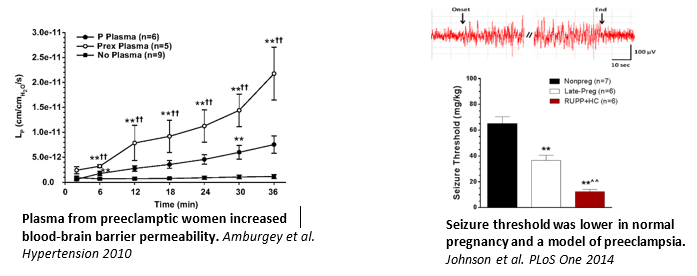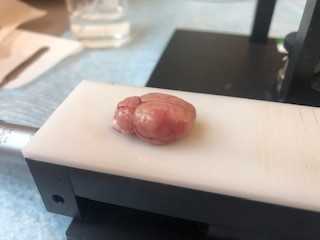We are interested in how both normal pregnancy and hypertension in pregnancy, including preeclampsia, affect the cerebral circulation in ways that promote neurologic symptoms, including seizure (eclampsia). Areas of investigation include changes in cerebral
blood flow autoregulation, blood-brain barrier permeability, and seizure susceptibility in models of pregnancy and preeclampsia. Our goal is to understand seizure susceptibility in preeclampsia in order to prevent this devastating condition.

We are also interested in how pregnancy and preeclampsia affect outcome from ischemic stroke including infarction and hemorrhagic transformation. Although stroke risk is higher in women with preeclampsia, the outcome from stroke is largely unknown
in this vulnerable population. Our goal is to provide needed information on stroke and stroke treatments (thrombolysis and endovascular thrombectomy) so that women with stroke in pregnancy and preeclampsia can be provided the same level of treatment
as other stroke patients.

Hemorrhagic transformation in nonpregnant rat brain.